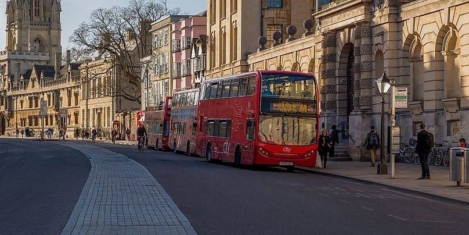November 2, 2018
Skills and new businesses drive decade of recovery for UK cities
 Improving skills levels and new business formation have been the key long-term drivers of growth for UK cities since the financial crisis, according to the latest Demos-PwC Good Growth for Cities 2018 index that ranks cities on a combination of economic performance and quality of life. The latest Index analyses a decade of economic and social data to determine what long-term factors drive Good Growth. PwC analysis shows that the average city in our index has improved its good growth score significantly over 10 years from 2005-7 to 2015-17, and has now more than recovered from the recession and downturn triggered by the global financial crisis.
Improving skills levels and new business formation have been the key long-term drivers of growth for UK cities since the financial crisis, according to the latest Demos-PwC Good Growth for Cities 2018 index that ranks cities on a combination of economic performance and quality of life. The latest Index analyses a decade of economic and social data to determine what long-term factors drive Good Growth. PwC analysis shows that the average city in our index has improved its good growth score significantly over 10 years from 2005-7 to 2015-17, and has now more than recovered from the recession and downturn triggered by the global financial crisis.

















 Cities in emerging markets, though challenged by economic and political turmoil, are catching up with top ranking cities following decades of investing in infrastructure, recreational facilities and housing in order to attract talent and multinational businesses, finds Mercer’s 20th annual
Cities in emerging markets, though challenged by economic and political turmoil, are catching up with top ranking cities following decades of investing in infrastructure, recreational facilities and housing in order to attract talent and multinational businesses, finds Mercer’s 20th annual 












